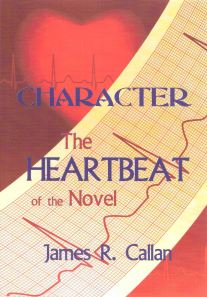Should I give my antagonist his own point of view?
I pondered this question as I wrote the draft for what became my debut novel, Where Treasure Hides.
The antagonist is Theodor Scheidemann, a German count who espoused Nazism because he wanted to be among Hitler’s elite. However, he is repulsed and even sickened by the brutality he witnesses.
This leads to the first reason to give your villain a voice: to dispel stereotypes.
I gave Theodor his own POV to reveal his personal viewpoints to the reader. Though he is a despicable person, I wanted readers to see beyond the Nazi label and to understand that not all Nazis believed as Hitler.
The second reason, to provide dimension, is closely related to the first.
Theodor came from a Prussian military background, and these officers had nothing but contempt for Hitler’s thugs. He has to reconcile his personal beliefs with his ambitions. The only way to reveal his conflict is to allow the reader to share it with him.
Your antagonist’s worldview can be justified (at least in his eyes) by giving him his own POV.
A third reason is: to keep the antagonist’s identity a secret.
My friend, author Patricia Bradley, writes romantic suspense. She gives her villains their own point-of-view scenes but doesn’t identify them.
Not only does the reader learn the villain’s plans, she also gets clues to his identity.
The reader is engaged in the story because she knows things the protagonists don’t AND she’s trying to guess the villain’s identity.
Did she guess right? She’s not going to close that book until she finds out.
A final reason is: to transform your antagonist into a protagonist.
Sometimes an antagonist isn’t dastardly, reprehensible, a scumbag, or all that villainous. And he probably shouldn’t be if he’s going to be the hero in your next book.
The antagonist in my next novel, tentatively titled Into a Spacious Place, is selfish, conceited, and way too sure of himself.
But I knew he’d be taking the starring role in the following story so he couldn’t be TOO wicked.
As the antagonist, he has a POV so the reader learns about the deep scars he hides behind his charming smile. His initial steps toward heroism are revealed so that readers will readily accept him as the protagonist of his own story.
If you’re wondering whether your villain needs a voice, consider these potential reasons for giving him one:
· To dispel a stereotype
· To provide added dimension
· To keep his identity a secret
· To transform him into a protagonist
And as you write your villain’s POV, remember: everyone, even the villain, is the hero of his or her own story.
(Note: Patricia Bradley and I are presenting this information as part of a workshop called, “A Hero You Love . . . A Villain You Love to Hate,” at the MidSouth Christian Writers Conference on Saturday, March 7, 2015 in Collierville, Tennessee. Please visit the MSCWC website for more information. We’d love to see you there!)
About Where Treasure Hides:
Artist Alison Schuyler spends her
time working in her family’s renowned art gallery, determined to avoid the
curse that has followed the Schuyler clan from the Netherlands to America and
back again. She’s certain that true love will only lead to tragedy—that is,
until a chance meeting at Waterloo station brings Ian Devlin into her life.
Drawn to the bold and
compassionate British Army captain, Alison begins to question her fear of love
as World War II breaks out, separating the two and drawing each into their own
battles. While Ian fights for freedom on the battlefield, Alison works with the
Dutch Underground to find a safe haven for Jewish children and priceless pieces
of art alike. But safety is a luxury war does not allow.
As time, war, and human will
struggle to keep them apart, will Alison and Ian have the faith to fight for
their love, or is it their fate to be separated forever?
Where Treasure Hides is currently available as an ebook. The print edition releases August 2015.
Amazon
Barnes & Noble
Christian Book Distributors
About Johnnie Alexander:
Johnnie Alexander is the author of Where Treasure Hides which won the ACFW Genesis Contest (2011 Historical Fiction). The first of her three contemporary romances, tentatively titled Into a Spacious Place, releases from Revell in January 2016.
She also has won the Golden Leaf (Autumn in the Mountains Novelist Retreat), Best Novel and Best Writer awards (Florida Christian Writers Conferences), and Bronze Medalist (My Book Therapy Frasier Contest).
A graduate of Rollins College (Orlando) with a Master of Liberal Studies degree, Johnnie lives in the Memphis area with a small herd of alpacas, her dogs Rugby and Skye, and assorted other animals.
She also has won the Golden Leaf (Autumn in the Mountains Novelist Retreat), Best Novel and Best Writer awards (Florida Christian Writers Conferences), and Bronze Medalist (My Book Therapy Frasier Contest).
A graduate of Rollins College (Orlando) with a Master of Liberal Studies degree, Johnnie lives in the Memphis area with a small herd of alpacas, her dogs Rugby and Skye, and assorted other animals.





